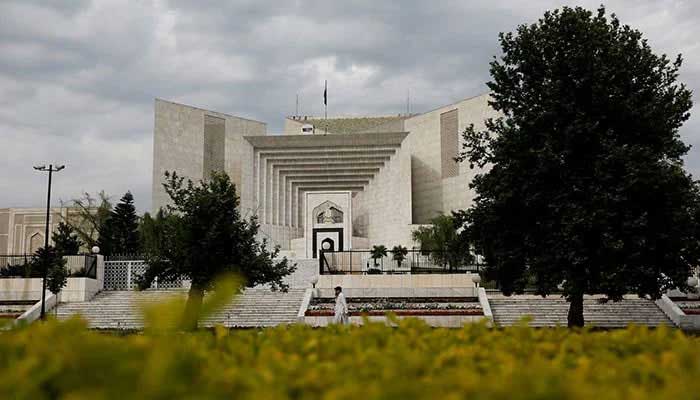The Judicial Commission of Pakistan (JCP) approved the appointment of six new Supreme Court judges on Monday. The decision came despite a boycott by Pakistan Tehreek-e-Insaf (PTI) lawmakers and two senior Supreme Court judges.
According to the press release issued by the Judicial Commission of Pakistan, Chief Justice of Pakistan (CJP) Yahya Afridi chaired the meeting. The commission considered high court judges’ nominations for the Supreme Court. By a majority vote, six judges were selected.
The newly appointed judges include Justice Muhammad Hashim Khan Kakar, Justice Muhammad Shafi Siddiqui, Justice Salahuddin Panhwar, Justice Ishtiaq Ibrahim, Justice Shakeel Ahmad, and Justice Aamer Farooq. Except for the Lahore High Court (LHC), chief justices from all high courts were among the selected judges. Additionally, the Judicial Commission of Pakistan nominated Justice Miangul Hassan Aurangzeb from the Islamabad High Court (IHC) as an Acting Supreme Court Judge.
Last month, the commission rescheduled its meeting from February 11 to February 10 to fill eight vacant Supreme Court judge positions. The JCP, responsible for approving judicial appointments, was restructured under the 26th Constitutional Amendment. This amendment introduced significant changes, including adding four parliamentarians to the commission.
The latest meeting witnessed a boycott by PTI representatives, Barrister Gohar Ali Khan and Senator Ali Zafar. Two Supreme Court judges, Justice Mansoor Ali Shah and Justice Munib Akhtar, also abstained. The PTI chairman opposed the session, arguing that the appointment process should be delayed until cases against the 26th Amendment were settled.
Previously, four Supreme Court judges, including Justices Shah and Akhtar, urged postponing the meeting. Senator Ali Zafar also wrote to CJP Yahya Afridi, requesting a delay. Speaking to the media, Barrister Gohar explained that PTI had already filed petitions against the 26th Amendment, which remain unresolved. Due to the meeting’s continuation, PTI decided to boycott the proceedings.
Barrister Ali Zafar supported the boycott, emphasizing that unresolved seniority issues should have delayed the session. He reiterated that concerns about judicial seniority were still pending but were ignored. According to him, PTI had already outlined its next steps, fully supporting the lawyers’ protest.
The issue of judicial transfers added to the controversy. Earlier this month, the Judicial Commission of Pakistan sought nominations from high courts, requesting a list of five senior judges from each. The IHC initially submitted three names: Chief Justice Aamer Farooq, Justice Mohsin Akhtar Kayani, and Justice Miangul Hassan Aurangzeb. Two other IHC judges, Justice Tariq Mehmood Jahangiri and Justice Babar Sattar, were ineligible due to insufficient service years.
However, recent judicial transfers reshaped the nomination process. Lahore High Court’s Justice Sarfraz Dogar, along with two judges from the Sindh and Balochistan High Courts, was transferred to the IHC. After his transfer, the IHC administration revised its seniority list, placing him as the senior puisne judge, which qualified him for nomination.
Following this decision, five IHC judges raised concerns about judicial seniority. They sent an official representation to the IHC chief justice and a copy to CJP Yahya Afridi. The judges argued that transferred judges must take a fresh oath under Article 194 of the Constitution. This would place them at the bottom of the IHC seniority list, making them ineligible for an immediate chief justice position.
Despite strong objections and legal concerns, the Judicial Commission of Pakistan proceeded with the appointments, further intensifying tensions within the judiciary and political circles.


